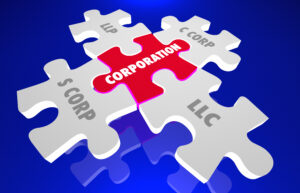How to Avoid Tax Preparation Scams
With so much to do and so many other important things to worry about, many people will be looking for help over the coming weeks and months with their income tax returns. While some people might just choose the first name they see to file their taxes, whom you choose can actually make a big difference.
Not only can your tax preparer play a big role in how much money you get back, but also there are some preparers that are simply looking to scam you. With nearly 60 percent of all tax returns being done by paid tax professionals, that means there is a lot of risk to taxpayers if they don’t choose wisely.
Fraudulent tax preparers use many different kinds of scams to cheat people out of money. These scams vary, with some preparers filing false returns in order to collect more money and others being outright scams, wherein the preparer files unauthorized returns and then takes most or all of the refund. The real problem for you the taxpayer is that if the IRS catches these fraudulent returns, you will be held liable even if you weren’t aware of your tax preparer’s actions.
So what should you do to avoid these scams? These are just a few ideas to keep in mind:
- Stay away from preparers asking for a percentage of your refund as their fee.
- Make sure you always look at the fine print and don’t sign a blank return.
- Never hand over financial info to a preparer unless you’ve chosen him/her to prepare your return.
- Make sure the preparer has signed the return and has included his/her IRS Tax Preparer Identification Number (PTIN).
- Don’t trust a preparer who doesn’t ask a lot of questions.
- Check out what the IRS says about choosing a tax professional.
Don’t get scammed by a shady tax preparer, make sure you do your homework first. Of course, you can always trust GROCO to give you honest and timely service. Our goal is to help you pay as little in taxes as legally possible. Contact us today at 1-877-CPA-2006.
Tax S-corporation
Saving Taxes with an S Corporation An S corporation election allows the shareholders to preserve the benefit of limited liability for the corporate form while at the same time being treated as partners for federal income tax purposes. Ever wondered why so many small businesses operate as an S corporation? Simple. An S corporation saves…
Sec1045 Partnerships
Sec1045 Partnerships This document contains final regulations relating to the application of section 1045 of the Internal Revenue Code (Code) to partnerships and their partners. These regulations provide rules regarding the deferral of gain on a partnership’s sale of qualified small business stock (QSB stock) and a partner’s sale of QSB stock distributed by a…
Sec179 Businessequipment
Updated: 11/12/10 Most new business equipment can be either depreciated over its useful life or expensed immediately under Internal Revenue Code Section 179. The maximum deduction is based on the following schedule for the date in which the tax year begins. Each 1040, whether Single or Joint, is limited to one maximum. 179 expenses passed…
Sec1244 Small Business Stock Sales
Sec1244 Small Business Stock Sales Section 1244 of the Internal Revenue Code, the small business stock provision, was enacted to allow shareholders of domestic small business corporations to deduct as ordinary losses, losses sustained when they dispose of their small business stock. In order to receive this beneficial treatment, the Code prescribes specific requirements for:…



